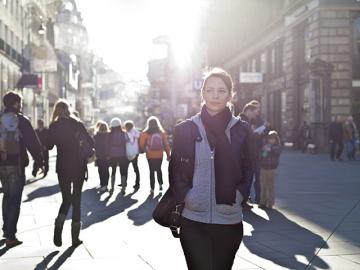The Framework aims to showcase what being a Human Rights City means and encourage more cities and local governments to make human rights an integral part of their work.
“Becoming a human rights city means explicitly linking the work of the city to human and fundamental rights obligations. Doing so can have an invigorating effect, boosting confidence in local government and fostering public debates that ultimately help make fairer societies for all,” said FRA Director Michael O’Flaherty.
Vienna, a city that has been a Human Rights City for six years, has helped to develop the new Framework. Allowing people to have their say about the city developments is high on their agenda.
“We are a Human Rights City because we integrate human rights principles in our daily work. We want to make people’s voices heard and get them involved in the life of our city,” explains Christoph Wiederkehr, Deputy Mayor of Vienna, Austria.
As part of this process, Vienna has also created a human rights office led by Shams Asadi, the Human Rights Commissioner.
“Being a Human Rights City is also a bottom-up movement. We take opinions from the ground very seriously,” explains Asadi.
“A lot of her work is about involving people in the city-decision making. Creating a culture of human rights is essential as well as involving all in the society, in particular the young people,” says Asadi.
The new Framework is designed to encourage others to follow the lead.
It consists of three main elements: foundations, structures and tools. These elements formalise a city’s commitment to fulfil human rights, provide for mechanisms and bodies that integrate this commitment into the city’s work, and offer methods and resources that help implement a human-rights based approach in daily activities.
Apart from that, it also aims to strengthen the links between cities and and facilitate peer exchange and learning.
“Working with other Human Right Cities is a great source of inspiration. The new Framework for Human Rights Cities will help us strengthen our cooperation and encourage the exchange of best practices between cities. This will benefit our citizens and possibly inspire and encourage other cities to join,” said Linda Voortman, Co-Mayor of Utrecht, the Netherlands.
A group of cities and regions, networks, institutional partners at EU, European and international levels, and experts developed the framework.
Join the discussion on how to effectively implement this new framework at the Forum!
Register now to join the debate and follow #RightsForum21 and #Cities4Rights to stay up to date on new developments.
